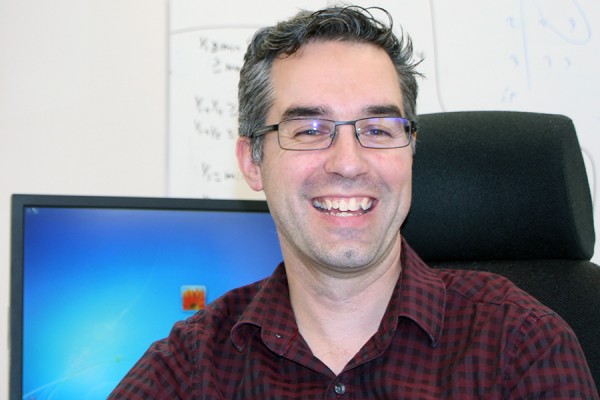 Economics professor Christian Trudeau’s theoretical research could help policy-makers with mechanisms to fairly distribute the costs of mass transit, compensate communities that host gas pipelines, or allocate licences for wireless spectrum licences.
Economics professor Christian Trudeau’s theoretical research could help policy-makers with mechanisms to fairly distribute the costs of mass transit, compensate communities that host gas pipelines, or allocate licences for wireless spectrum licences.
The recipe for designing better auctions, allocating the costs of mass transit fairly, or even distributing free concert tickets could flow from the latest research by a UWindsor economics professor.
Christian Trudeau, along with a research partner in the Netherlands and another in the United States, is studying what economists like him call “mechanism design and surplus sharing with externalities.” In plain language, it means designing substitutes for markets where markets are not feasible or inefficient.
“We study the problem in a purely theoretical manner,” said Dr. Trudeau. “While theoretical, the results we obtain will help deepen our understanding and provide new tools for many real-world situations.”
He offers the examples of the provision of health insurance, the design of auctions to allocate wireless spectrum licences, the identification of situations more likely to allow firms to collude, and the determination of fair compensation to the communities where gas pipelines are located.
Trudeau and his co-authors are using algebra and calculus to come up with designs — if they exist — with certain axioms. They are looking for designs:
- that yield efficient outcomes;
- where the players aren’t envious of each other;
- where the players participate voluntarily;
- where enough money is collected to pay the bills; and
- where it’s not in the players’ interest to lie.
By making sure that participants have no interest in lying, the theoretical work can be used by lawmakers to avoid unintended consequences resulting from participants trying to game the system. Variations have been used to design the mechanisms for college admissions and the school voucher system in the United States. Similar work, used to improve the organ donation system in the United States, won a pair of economists the 2012 Prize in Economic Sciences in Memory of Alfred Nobel.
Trudeau said the research initially will be of interest to other economists and scholars, perhaps making its way into course curricula.
“Over time, these findings could help organizations in need of such mechanisms.”
The value of the research has been recognized by the Social Science and Humanities Research Council of Canada, which awarded Trudeau a grant of $59,500 over five years. Trudeau said he expects the research will spawn at least nine journal articles, as well as textbook chapters.
“We hope that this will trickle down to a more general audience and eventually end up in the hands of government and non-governmental organization officials who can implement this theory.”
─Sarah Sacheli
